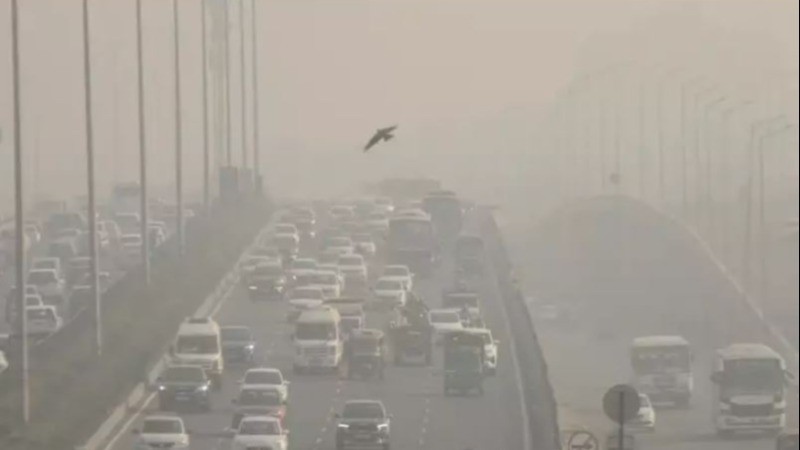
NEW DELHI: The air quality in Delhi and the surrounding National Capital Region (NCR) remained in the 'very poor' category on Friday morning, with a layer of smog hanging over the region. According to the Central Pollution Control Board (CPCB), the average Air Quality Index (AQI) in Delhi was recorded at 371 as of 7:15 a.m.
In other NCR cities, the AQI readings were also concerning: Faridabad had an AQI of 263, Gurugram was at 281, Ghaziabad registered 274, Greater Noida stood at 234, and Noida recorded a level of 272.
Several areas in Delhi showed particularly alarming figures, with AQI readings over 400, which falls into the 'severe' category. The specific AQI levels were 410 in Anand Vihar, 411 in Bawana, 426 in Jahangirpuri, 402 in Mundka, 410 in Nehru Nagar, 402 in Shadipur, and 413 in Wazirpur.
Many other areas of Delhi also faced 'very poor' air quality, including Alipur (389), Ashok Vihar (395), Aya Nagar (369), Burari Crossing (369), Chandni Chowk (369), Mathura Road (333), Dr. Karni Singh Shooting Range (373), IGI Airport (357), Dilshad Garden (320), and ITO and Jawaharlal Nehru Stadium, both at 342.
The CPCB categorizes AQI levels between 200 and 300 as "poor," 301 to 400 as "very poor," 401 to 450 as "severe," and anything above 450 as "severe plus."
In response to the pollution, the New Delhi Municipal Corporation (NDMC) initiated night-time cleaning and road sweeping at several locations early on Friday.
On Thursday, after days of being in the 'severe' and 'severe plus' categories, the city's overall air quality showed slight improvement, moving into the 'very poor' range. Despite this, a thick smog continued to linger, with the AQI at 389 at 7:15 a.m. Several neighborhoods remained in the 'severe' category, with 12 locations recording AQI levels between 400 and 500, and 26 others between 300 and 400.
In light of the hazardous air quality, the government has implemented several measures to reduce pollution. The Centre has announced staggered working hours for its employees. An official order from the Union Ministry of Personnel encouraged staff to carpool and use public transport, stating that offices could operate from either 9 a.m. to 5:30 p.m. or from 10 a.m. to 6:30 p.m.
The Commission for Air Quality Management (CAQM) has also tightened the Graded Response Action Plan (GRAP), introducing stricter regulations. Under the updated guidelines, physical classes for students up to Class 5 will be suspended during GRAP Stage 3, and for students up to Class 12 in GRAP Stage 4.
In addition, the revised GRAP mandates staggered timings for public offices and municipal bodies to help reduce traffic and emissions. During Stage 4, residents are advised to wear masks when venturing outdoors to protect themselves from the poor air quality.
Delhi Orders 50% Work-from-Home as Air Quality Deteriorates
Delhi Minister Gopal Rai Urges Urgent Meeting for Cloud Seeding to Combat Smog
Delhi-NCR Pollusion LIVE: Severe Air Pollution Sparks Medical Emergency Across Northern India